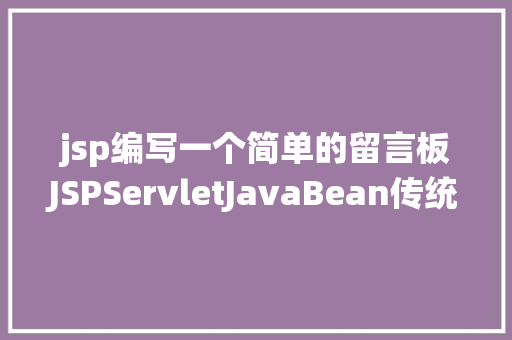利用虚拟机搭建本地开拓环境,安全地与本地操作系统隔离开,让开发环境和生产环境保持同等。
利用Windows系统开拓PHP的小伙伴们,更加强烈推举利用虚拟机的开拓环境:
Windows大小写不敏感,很随意马虎由于这个问题涌现缺点而无法得知

很多软件只有Linux版,或者Windows版本不完善(例如Nngix,Memcached,Redis)
部分扩展模块不支持(如memcached,pcntl,ZendOpcache, swoole)
大部分的PHP生产环境都运行在Linux上,担保代码兼容性
安装VirtualBoxVartualBox是一款精良的虚拟机软件,现有Oracle公司进行开拓。它供应用户在32位或64位的Windows、Solaris、MacOS及Linux 操作系统上虚拟其它x86的操作系统。
进入VartualBox下载页面选择得当的版本下载并按提示进行安装。
Vagrant什么是Vagrant
Vagrant是一款用于构建及配置虚拟开拓环境的软件,基于Ruby,紧张以命令行的办法运行。
紧张利用Oracle的开源VirtualBox虚拟化系统,与Chef,Salt,Puppet等环境配置管理软件搭配利用, 可以实施快速虚拟开拓环境的构建。
早期以VirtualBox为工具,1.1往后的版本中开始对应VMware等虚拟化软件,包括Amazon EC2之类做事器环境的对应。
安装Vagrant
Vagrant支持MacOS、Windows、Linux多种操作系统。进入下载页面下载适宜你操作系统的安装程序进行安装。
Vagrant镜像
Vagrant环境的虚拟机镜像称为box。在Vargrant官网中有一个Boxes链接到HashiCorp's Atlas。这个是Vargrant的boxes仓库。
Vargrant是一款命令行工具,它与Atlas的关系相称于Composer之于Packagist,box就相称于packagist里面的package。
其余,还有其余一个第三方boxes仓库:http://www.vagrantbox.es/
添加box
在Atlas找到得当你的系统box和版本。在本例中,我考试测验找Ubuntu这个精良的Linux发行版。搜索ubuntu关键字,可以得到很多不同作者或不同的版本,当前最新的LTS版是1604,它在Atlas的名字叫做ubuntu/xenial64。
Vagrant的每个命令或子命令都可以加入参数-h或--help得到帮助。利用vagrant box add命令添加box:
输入命令后,你会看到类似的命令行提示,表示说Vagrant正在从远程的地址下载这个box。
这是一个漫长的过程,如果你的下载速率不是太空想,建议按CTRL+C取消命令行下载。从命令行提示得知,它的下载地址是https://atlas.hashicorp.com/ubuntu/boxes/xenial64/versions/20161221.0.0/providers/virtualbox.box,你可以复制这个地址然后利用迅雷等多线程下载工具把box下载到本地。
利用list子命令可以查看所有已安装的box
1.$ vagrant box list
2.ubuntu/xenial64 (virtualbox, 0)
利用remove子命令可以移除一个已添加的box
1.$ vagrant box remove ubuntu/xenial64
配置和创建虚拟机
首先,创建一个新的空目录并进入
$ mkdir ~/vagrant_demo$ cd ~/vagrant_demo
利用vagrant init命令,在当前目录创建Vagrantfile
$ vagrant init
或者指定虚拟机利用的box:
$ vagrant init ubuntu/xenial64
A `Vagrantfile` has been placed in this directory. You are now
ready to `vagrant up` your first virtual environment! Please read
the comments in the Vagrantfile as well as documentation on
`vagrantup.com` for more information on using Vagrant.
Vagrantfile的紧张功能是描述你须要的虚拟机类型,以及如何配置这些虚拟机。类似于Composer的composer.json文件。
Vagrantfile
Vagrant每个虚拟机都须要运行Vagrantfile。Vagrantfile利用Ruby的语法编写,纵然不懂Ruby措辞也可以轻松的编辑Vagrantfile,由于它紧张是大略的变量赋值。
这里大略说几个主要的配置。
利用你喜好的文本编辑器打开Vagrantfile,可以看到,它只有短短几行(#号开头的行是注释)。
Vagrant.configure(\公众2\公众) do |config| # v2 configs... end
第一行中的2表示vagrant的版本,目前只支持1和2。版本1表示Vagrant 1.0.x的配置。2表示Vagrant 1.1+版本的配置。虚拟机的详细配置在关键字do和end之间。用vagrant init命令天生的Vagrantfile不须要修正这个版本号,如果用别人共享的Vagrantfile文件的话须要留神下是否适宜你的Vagrant版本。
config.vm.box
config.vm.box = \"大众ubuntu/xenial64\"大众
config.vm.box这个配置是描述虚拟机将要利用的镜像box。这里的值该当HashiCorp's Atlas列出的box名称,或者已安装(利用vagrant box add命令添加)的box名称。
目前它自动填上值ubuntu/xenial64,那是由于我利用vagrant init ubuntu/xenial64时指定了box名称。
config.vm.hostname
config.vm.hostname定义虚拟机的主机名。如:
config.vm.hostname = \"大众vm.vergil.cn\公众
config.vm.network
config.vm.network配置虚拟机的网络。Vagrant供应3种网络设置:
端口转发(forwarded_port)
可以看到自动天生的Vagrantfile里面有这句被注释掉的:
config.vm.network \"大众forwarded_port\"大众, guest: 80, host: 8080
它的意思是转发本机(客户机)的80端口映射到虚拟机的8080端口。默认它定义为TCP协议,你可以利用第三个参数protocol指定转发轫口的协议:可用的值tcp,udp,tcp/udp如:
config.vm.network \"大众forwarded_port\"大众, guest:2003, host:12003, protocol:\公众tcp/udp\公众
公共网络(public_network)
利用config.vm.network \"大众public_network\"大众语句来指定利用公共网络。
可以添加参数来指定它利用DHCP自动分配:
config.vm.network \"大众public_network\"大众,use_dhcp_assigned_default_route: true
也可以指定静态IP地址:config.vm.network \公众public_network\"大众, ip: \公众192.168.0.17\公众
指定网卡,可以用过:dridge选项
config.vm.network \公众public_network\"大众, bridge: \"大众en1: Wi-Fi (AirPort)\"大众
专用网络(private_network)
定义DHCP专用网络
config.vm.network \"大众private_network\"大众, type: \"大众dhcp\"大众
指定IP:config.vm.network \"大众private_network\"大众, ip: \"大众192.168.50.4\"大众
config.vm.synced_folder
config.vm.synced_folder配置项用来配置同步文件夹。便是把本地目录和文件挂载到虚拟机上。
第一个参数是你本机的文件夹路径,可以是绝对路径或相对路径(相对付项目根目录,也便是创建虚拟机时,Vagrantfile所在的目录)。
第二个参数是虚拟机的目录,必须是一个绝对路径。如果不存在会被自动创建。
其他参数请参阅文档
如:
config.vm.synced_folder \"大众/data/htdocs\"大众, \公众/wwwroot\"大众
在默认情形下,如果缺省这个参数,Vagrant会将项目目录共享到虚拟机的/vagrant目录
config.vm.provider
config.vm.provider配置项用于配置指定的虚拟机和对付不同的虚拟机软件的特定设置。默认情形下会指定virtualbox
在自动天生的Vagrant,可以看到以下被注释的语句,这个是对virtualbox的配置例子:
# config.vm.provider \"大众virtualbox\"大众 do |vb|
# # Display the VirtualBox GUI when booting the machine
# vb.gui = true
#
# # Customize the amount of memory on the VM:
# vb.memory = \"大众1024\"大众
# end
这里我大略先容几个常用配置:
gui
默认情形下,VirtualBox以headless mode(无外设模式)启动,意味着没有GUI。如果你想看到虚拟机的UI,可以将它设为true:
vb.gui =true
name
这个配置项用于设置VirtualBox管理器上显示的名称,如果有多台虚拟机以便更好的区分
customize
VBoxManage工具可以从命令行对VirtualBox进行修正。Vagrant供应一种方法在虚拟机启动前调用VBoxManage命令:
vb.customize [\"大众modifyvm\公众, :id, \"大众--memory\"大众, \"大众1024\"大众, \"大众--cpus\公众, \"大众1\"大众]
有一些方便的快捷办法用于内存和CPU设置:
vb.memory =1024
vb.cpus =2
创建虚拟机
OK,修正后,我的Vagrantfile如下:
# -- mode: ruby --
# vi: set ft=ruby :
Vagrant.configure(\"大众2\"大众) do |config|
config.vm.box = \"大众ubuntu/xenial64\"大众
config.vm.network \"大众private_network\公众, ip: \"大众192.168.10.10\"大众
config.vm.synced_folder \"大众./data\公众, \"大众/vagrant_data\"大众
config.vm.synced_folder \"大众/data/htdocs/\"大众, \"大众/wwwroot\"大众
config.vm.provider \"大众virtualbox\"大众 do |vb|
vb.gui = true
vb.name = \"大众ubuntu1604\"大众
vb.memory = \"大众1024\"大众
end
end
此时,在你Vargrant所在的目录,运行命令vagrant up。这个命令根据你的Vagrantfile创建和配置虚拟机。而当前目录也是上面提到的项目根目录。
$ pwd
/Users/vergil/Documents/vagrant_demo
$ vagrant up
Bringing machine 'default' up with 'virtualbox' provider...
==> default: Importing base box 'ubuntu/xenial64'...
==> default: Matching MAC address for NAT networking...
==> default: Setting the name of the VM: ubuntu1604
==> default: Fixed port collision for 22 => 2222. Now on port 2201.
==> default: Clearing any previously set network interfaces...
==> default: Preparing network interfaces based on configuration...
default: Adapter 1: nat
default: Adapter 2: hostonly
==> default: Forwarding ports...
default: 22 (guest) => 2201 (host) (adapter 1)
==> default: Running 'pre-boot' VM customizations...
==> default: Booting VM...
==> default: Waiting for machine to boot. This may take a few minutes...
default: SSH address: 127.0.0.1:2201
default: SSH username: ubuntu
default: SSH auth method: password
default: Warning: Remote connection disconnect. Retrying...
default:
default: Inserting generated public key within guest...
default: Removing insecure key from the guest if it's present...
default: Key inserted! Disconnecting and reconnecting using new SSH key...
==> default: Machine booted and ready!
==> default: Checking for guest additions in VM...
==> default: Configuring and enabling network interfaces...
==> default: Mounting shared folders...
default: /vagrant => /Users/vergil/Documents/vagrant_demo
default: /wwwroot => /data/htdocs
default: /vagrant_data => /Users/vergil/Documents/vagrant_demo
这时,虚拟机创建成功并启动了!
由于我设置了gui=true,以是打开VirtualBox同时启动了:
利用其他虚拟机软件
Vagrant大部分的box都支持VirtualBox,如果你利用的是其他虚拟机软件,须要查看它是否支持。也可以在HashiCorp's Atlas页面的Provider filter筛选你所利用的虚拟机软件。
然后在vagrant up供应参数--provider,比如CentOS7在VMware Workstation上运行:
vagrant init centos/7; vagrant up --provider vmware_workstation
查看虚拟机状态
利用vagrant status命令可以查看当前项目目录的虚拟机状态:
$ vagrant status
Current machine states:
default running (virtualbox)
The VM is running. To stop this VM, you can run `vagrant halt` to
shut it down forcefully, or you can run `vagrant suspend` to simply
suspend the virtual machine. In either case, to restart it again,
simply run `vagrant up`.
离开项目目录利用status是不能的,如果想查看全局所有的虚拟机状态,可以利用global-status命令:
$ vagrant global-status
id name provider state directory
--------------------------------------------------------------------------------
c2fdbe7 homestead-7 virtualbox poweroff /Users/vergil/Homestead
6e85c79 machine1 virtualbox running /Users/vergil/Documents/puphpet/2UQFc8
9b77363 default virtualbox running /Users/vergil/Documents/vagrant_demo
The above shows information about all known Vagrant environments
on this machine. This data is cached and may not be completely
up-to-date. To interact with any of the machines, you can go to
that directory and run Vagrant, or you can use the ID directly
with Vagrant commands from any directory. For example:
\"大众vagrant destroy 1a2b3c4d\"大众
关闭/启动/重启/停息/规复/销毁虚拟机
以下命令可以在项目目录直接运行,如果在非项目目录下须要指定虚拟机的id或name
可以在项目目录运行vagrant halt关闭当前项目虚拟机,如果在非项目目录虚拟指定虚拟机的id或name
关闭虚拟机,如:
$ vagrant halt 9b77363
vagrant up启动虚拟机:
$ vagrant up
vagrant reload相称于halt之后up,并且对Vagrantfile中的更新生效。。
$ vagrant reload
利用过VirtualBox的同学(包括我)都不会直接关闭虚拟机,而是让它停息(休眠),Vagrant同样有这样的功能:
$ vagrant suspend
然后在你须要的时候把它唤醒
$ vagrant resume
利用SSH连接到虚拟机
利用vagrant ssh命令可以在项目目录通过SSH办法连接到虚拟机,或者指定虚拟机id或name:
vagrant ssh 9b77363
Welcome to Ubuntu 16.04.1 LTS (GNU/Linux 4.4.0-57-generic x86_64)
Documentation: https://help.ubuntu.com
Management: https://landscape.canonical.com
Support: https://ubuntu.com/advantage
Get cloud support with Ubuntu Advantage Cloud Guest:
http://www.ubuntu.com/business/services/cloud
0 packages can be updated.
0 updates are security updates.
Last login: Sun Jan 1 20:17:54 2017 from 10.0.2.2
ubuntu@ubuntu-xenial:~$
ok,看到这些信息已经成功连接到虚拟机啦。试试运行下面命令?
ubuntu@ubuntu-xenial:~$ hostname
ubuntu-xenial
ubuntu@ubuntu-xenial:~$ ifconfig
enp0s3 Link encap:Ethernet HWaddr 02:a6:9f:fe:ad:64
inet addr:10.0.2.15 Bcast:10.0.2.255 Mask:255.255.255.0
inet6 addr: fe80::a6:9fff:fefe:ad64/64 Scope:Link
UP BROADCAST RUNNING MULTICAST MTU:1500 Metric:1
RX packets:1078 errors:0 dropped:0 overruns:0 frame:0
TX packets:751 errors:0 dropped:0 overruns:0 carrier:0
collisions:0 txqueuelen:1000
RX bytes:120599 (120.5 KB) TX bytes:102761 (102.7 KB)
enp0s8 Link encap:Ethernet HWaddr 08:00:27:62:bc:20
inet addr:192.168.10.10 Bcast:192.168.10.255 Mask:255.255.255.0
inet6 addr: fe80::a00:27ff:fe62:bc20/64 Scope:Link
UP BROADCAST RUNNING MULTICAST MTU:1500 Metric:1
RX packets:0 errors:0 dropped:0 overruns:0 frame:0
TX packets:16 errors:0 dropped:0 overruns:0 carrier:0
collisions:0 txqueuelen:1000
RX bytes:0 (0.0 B) TX bytes:1296 (1.2 KB)
lo Link encap:Local Loopback
inet addr:127.0.0.1 Mask:255.0.0.0
inet6 addr: ::1/128 Scope:Host
UP LOOPBACK RUNNING MTU:65536 Metric:1
RX packets:0 errors:0 dropped:0 overruns:0 frame:0
TX packets:0 errors:0 dropped:0 overruns:0 carrier:0
collisions:0 txqueuelen:1
RX bytes:0 (0.0 B) TX bytes:0 (0.0 B)
ubuntu@ubuntu-xenial:~$ whoami
ubuntu
ubuntu@ubuntu-xenial:~$ sudo passwd ubuntu
Enter new UNIX password:
Retype new UNIX password:
passwd: password updated successfully
ubuntu@ubuntu-xenial:~$
在这里,我知道了当前的用户名是ubuntu,并且我重置了密码:)
从其他终端连接
很多人(特殊是Windows用户)喜好从其他终端登录,如:PuTTY和SecureCRT®
从上面运行vagrant up后输出的信息可以看到,Vagrant把虚拟机的22端口映射到了本机(宿主机)的2201端口。
把稳:默认情形下,它会映射到2222端口,但是我有其他虚拟机并且启动了,以是该端口被占用
利用vagrant ssh-config查看虚拟机的SSH配置:
$ vagrant ssh-config
Host default
HostName 127.0.0.1
User ubuntu
Port 2201
UserKnownHostsFile /dev/null
StrictHostKeyChecking no
PasswordAuthentication no
IdentityFile /Users/vergil/Documents/vagrant_demo/.vagrant/machines/default/virtualbox/private_key
IdentitiesOnly yes
LogLevel FATAL
那么,可以在利用宿主机的命令或工具(我这里没有安装其他Shell客户端工具)连接到虚拟机:
ssh -p 2201 ubuntu@127.0.0.1
ubuntu@127.0.0.1's password:
Welcome to Ubuntu 16.04.1 LTS (GNU/Linux 4.4.0-57-generic x86_64)
Documentation: https://help.ubuntu.com
Management: https://landscape.canonical.com
Support: https://ubuntu.com/advantage
Get cloud support with Ubuntu Advantage Cloud Guest:
http://www.ubuntu.com/business/services/cloud
0 packages can be updated.
0 updates are security updates.
Last login: Sun Jan 1 20:23:14 2017 from 10.0.2.2
ubuntu@ubuntu-xenial:~$ exit
logout
Connection to 127.0.0.1 closed.
或者直策应用IP登录更为省事:
ssh ubuntu@192.168.10.10
ubuntu@192.168.10.10's password:
Welcome to Ubuntu 16.04.1 LTS (GNU/Linux 4.4.0-57-generic x86_64)
Documentation: https://help.ubuntu.com
Management: https://landscape.canonical.com
Support: https://ubuntu.com/advantage
Get cloud support with Ubuntu Advantage Cloud Guest:
http://www.ubuntu.com/business/services/cloud
0 packages can be updated.
0 updates are security updates.
Last login: Sun Jan 1 20:29:14 2017 from 10.0.2.2
ubuntu@ubuntu-xenial:~$ exit
logout
Connection to 192.168.10.10 closed.
查看共享文件夹
在虚拟机终端内,查看我刚才在Vagrantfile写的/vagrant_data和/wwwroot目录,你可以创造里面的文件和你宿主机的文件是同步的。
查看文件系统:
$ df -hT
Filesystem Type Size Used Avail Use% Mounted on
udev devtmpfs 490M 0 490M 0% /dev
tmpfs tmpfs 100M 3.1M 97M 4% /run
/dev/sda1 ext4 9.7G 918M 8.8G 10% /
tmpfs tmpfs 497M 0 497M 0% /dev/shm
tmpfs tmpfs 5.0M 0 5.0M 0% /run/lock
tmpfs tmpfs 497M 0 497M 0% /sys/fs/cgroup
vagrant vboxsf 233G 204G 30G 88% /vagrant
wwwroot vboxsf 233G 204G 30G 88% /wwwroot
vagrant_data vboxsf 233G 204G 30G 88% /vagrant_data
tmpfs tmpfs 100M 0 100M 0% /run/user/1000
打包
这时,已经安装好了操作系统,然后你须要在这上面搭建你的开拓环境。
统统正常事情后,你是否想将这个环境复用或者分享给同事,使大家的开拓环境同等呢?
在宿主机上运行vagrant package命令,可以将当前运行的VritualBox环境打包成可重用的box.
$ vagrant package --base ubuntu1604 --output ~/Documents/vagrant_demo/package/vergil_ubuntu1604.box
==> ubuntu1604: Attempting graceful shutdown of VM...
ubuntu1604: Guest communication could not be established! This is usually because
ubuntu1604: SSH is not running, the authentication information was changed,
ubuntu1604: or some other networking issue. Vagrant will force halt, if
ubuntu1604: capable.
==> ubuntu1604: Forcing shutdown of VM...
==> ubuntu1604: Clearing any previously set forwarded ports...
==> ubuntu1604: Exporting VM...
==> ubuntu1604: Compressing package to: /Users/vergil/Documents/vagrant_demo/package/vergil_ubuntu1604.box
成功后查看一下:
$ du -sh ~/Documents/vagrant_demo/package/vergil_ubuntu1604.box287M /Users/vergil/Documents/vagrant_demo/package/vergil_ubuntu1604.box
配置多台虚拟机
Vagrant配置多台虚拟机实现分布式效果也非常方便的。
多个机器在同一个项目的Vagrantfile中,利用config.vm.define方法定义机器。然后配置每个机器的信息:
一个大略的例子:
Vagrant.configure(\"大众2\公众) do |config|
config.vm.define \"大众web1\公众 do |web1|
web1.vm.provider \"大众virtualbox\"大众 do |v|
v.customize [\"大众modifyvm\公众, :id, \"大众--name\"大众, \"大众web1\"大众, \"大众--memory\"大众, \"大众1024\公众]
end
web1.vm.box = \"大众your-apache.box\"大众
web1.vm.hostname = \"大众web1\"大众
web1.vm.network \"大众public_network\公众, ip: \公众192.168.31.101\"大众
end
config.vm.define \"大众web2\"大众 do |web2|
web2.vm.provider \"大众virtualbox\"大众 do |v|
v.customize [\"大众modifyvm\公众, :id, \"大众--name\"大众, \"大众web2\"大众, \公众--memory\"大众, \"大众1024\"大众]
end
web2.vm.box = \"大众your-apache.box\公众
web2.vm.hostname = \"大众web2\公众
web2.vm.network \"大众public_network\公众, ip: \"大众192.168.31.102\"大众
end
config.vm.define \"大众db1\"大众 do |db1|
db1.vm.provider \"大众virtualbox\公众 do |v|
v.customize [\"大众modifyvm\"大众, :id, \"大众--name\"大众, \"大众db1\公众, \公众--memory\公众, \公众1024\公众]
end
db1.vm.box = \公众your-mysql.box\公众
db1.vm.hostname = \"大众db1\"大众
db1.vm.network \"大众public_network\公众, ip: \公众192.168.31.201\公众
end
config.vm.define \"大众db2\公众 do |db2|
db2.vm.provider \"大众virtualbox\"大众 do |v|
v.customize [\"大众modifyvm\"大众, :id, \"大众--name\"大众, \公众db2\"大众, \"大众--memory\"大众, \"大众1024\"大众]
end
db2.vm.box = \"大众your-mysql.box\公众
db2.vm.hostname = \公众db2\"大众
db2.vm.network \"大众public_network\"大众, ip: \"大众192.168.31.202\公众
end
end
PROVISIONING
那么,看了半天,还要自己手动搭建开拓环境啊?
很遗憾,是的。但请接着看下面的。
常日情形下Box只做最基本的设置,而不是设置好所有的环境,因此Vagrant常日利用Chef或者Puppet来做进一步的环境搭建。
自动配置虚拟机Puppet
puppet是一种Linux、Unix、windows平台的集中配置管理系统,利用自有的puppet描述措辞,可管理配置文件、用户、cron任务、软件包、系统做事等。puppet把这些系统实体称之为资源,puppet的设计目标是简化对这些资源的管理以及妥善处理资源间的依赖关系。
PuPHPet
学习puppet本钱高,还要学一套它的理论和它的语法,现在利用它并不能立时让你搭建一个开拓环境。
PuPHPet是一个大略的设置Web开拓虚拟机的GUI。
轻松地与朋友和同事分享
支配到天下上任何的做事器
MIT开源协议
在PuPHPet,通过大略的设置,你可以选择把虚拟机配置到哪里,可以选择你想要的操作系统,选择你喜好的PHP版本,选择数据库和版本,还有其他软件等等。。。然后PuPPet会帮你天生一个Vagrantfile文件和Puppet配置,下载解压后,你要做的事情便是运行vagrant up,它就会完成你的哀求,帮你自动配置你的虚拟机啦(期间内我个人建议可以去睡觉了)。
在左边的导航栏,你可以看到这些选项
Deploy Target
点击Deploy Target下的Locally。然后把Deploy to Local Host(支配到本机)前面的勾打上。然后选择你的虚拟机软件,系统发行版,添加你的机器信息(包括机器名称,Hostname,IP,内存,CPU,端口转发,共享文件夹等等)。它还可以同时配置多台机器,点击Add another machine连续填写信息即可。
System
Packages: 添加你想要的系统软件
User & Groups: 设置用户和用户组
Locate/Timezone: 设置系统默认措辞和支持的措辞,时区
Firewall Rules:防火墙规则
Cron Jobs:添加操持任务
Web Servers
设置Web做事器,默认Nginx。详细参数查看Nginx官方文档或者淘宝供应的中文版本。
当然,你也可以选择Apache或者Nginx和Apache合营利用搭建LNAMP环境。
Languages
选择开拓措辞(默认PHP),其他的还有Ruby,Python,NodeJS,还有PHP的HHVM。
选择PHP的版本,是否安装Composer,php.ini的设置,FastCGI参数的设置,须要安装什么模块。都可以在这里设置
Databases
选择数据库和版本(默认MaridDB),创建用户密码和权限,都在这里设置。
支持的数据库:
MariaDB
MySQL
PostageSQL
MongoDB
Redis
SQLite
Create Archive
上述步骤完成后,点击Create Archive页面的Download your custom server config!,PuPHPet会根据你的选择创建Vagrantfile文件和puppet的配置文件的压缩包puphpet.zip。
解压后,进入到Vagrantfile所在目录,运行vagrant up,它就会自动配置你的虚拟机了。
稍等,在运行之前,你可以安装一个Vagrant插件host manager,这个插件让Vagrant会自动把你设置的主机名添加到/ect/hosts:
$ vagrant plugin install vagrant-hostmanagerInstalling the 'vagrant-hostmanager' plugin. This can take a few minutes...Installed the plugin 'vagrant-hostmanager (1.8.5)'!
当然你可以跳过这一步,那么开始了:
$ vagrant up
ZZZZzzzz。。。。
ZZZZzzzz。。。。
ZZZZzzzz。。。。
ZZZZzzzz。。。。
安装完成后,检讨各个软件都能事情正常了,就可以再次用上面说到的vagrant package命令把这个环境打包成一个box共享给你的小伙伴利用啦:)
Laravel Homestead可能看到这里的小伙伴们有点不耐烦了,要么要自己配置,要么便是等待这么漫长的韶光。那有没有一个拆箱即用的开拓环境呢?
有的,那便是Laravel Homestead。
如果看了文章前面的内容的话,就算没打仗过Laravel,也会以为这个名字很熟?
没错,它便是在HashiCorp's Atlas下载量非常高的一个box。
GitHub: https://github.com/laravel/homestead
Atlas: https://atlas.hashicorp.com/laravel/boxes/homestead
Packagest: https://packagist.org/packages/laravel/homestead
简介
Laravel 致力于让 PHP 的开拓过程变得更加轻松愉快,这个中也包含你确当地开拓环境。
Laravel Homestead 是一个官方预封装的 Vagrant box,供应给你一个完美的开拓环境,你无需在本机电脑上安装 PHP、HHVM、Web 做事器或其它做事器软件。并且不用再担心系统被搅散!
Vagrant box 为你搞定统统。如果有什么地方出错了,你也可以在几分钟内快速的销毁并重修虚拟机!
Homestead 可以在 Windows、Mac 或 Linux 系统上面运行,里面包含了 Nginx Web 做事器、PHP 7.0、MySQL、Postgres、Redis、Memcached、Node,以及所有你在利用 Laravel 开拓时所须要用到的各种软件。
Laravel是一款非常非常...(这里省略1万字)好用的PHP框架。但是Homestead只是一个开拓环境,就算你不用Laravel框架也可以用Homestead,也是非常好用的哦(便是觉得内置软件有点多了。。。)
内置软件
Ubuntu 16.04
Git
PHP 7.0
Nginx
MySQL
MariaDB
Sqlite3
Postgres
Composer
Node (With PM2, Bower, Grunt, and Gulp)
Redis
Memcached
Beanstalkd
安装
好了,复制官方手册也没意思,建议去Laravel China看下中文文档。
那么我就重新安装一下吧,首先,你要确保已经安装了Composer(当代PHP必装工具),确保composer目录已经添加到系统环境变量。
然后全局安装laravel/homestead
$ composer global require laravel/homestead
安装安装后可以创造~/.composer/vendor/bin(Linux/OS X用户), Windows用户在C:/Users/{用户名}/AppData/Roaming/Composer/vendor/bin)目录下,然后把这个目录添加到环境变量。
添加box
首先添加一个box,这一步可以省略,由于运行vagrant up时创造你没有这个box,它会自动下载,只是这样更加快一点(这个box很大呐,1.03G)。
$ vagrant box add laravel/homestead --provider virtualbox==> box: Loading metadata for box 'laravel/homestead'box: URL: https://atlas.hashicorp.com/laravel/homestead==> box: Adding box 'laravel/homestead' (v1.0.1) for provider: virtualbox box: Downloading: https://atlas.hashicorp.com/laravel/boxes/homestead/versions/1.0.1/providers/virtualbox.box box: Progress: 0% (Rate: 24507/s, Estimated time remaining: 17:34:52)
看到这个之后,按CTRL+C取消,复制地址,然后用迅雷下载。
下载完成后,运行以下命令添加本地box,请按你刚才下载的box文件所在路径修正第二个参数:
$ vagrant box add laravel/homestead ~/Downloads/homestead.box
==> box: Box file was not detected as metadata. Adding it directly...
==> box: Adding box 'laravel/homestead' (v0) for provider:
box: Unpacking necessary files from: file:///Users/vergil/Downloads/homestead.box
==> box: Successfully added box 'laravel/homestead' (v0) for 'virtualbox'!
$ vagrant box list
laravel/homestead (virtualbox, 0)
puphpet/ubuntu1604-x64 (virtualbox, 20161102)
ubuntu/xenial64 (virtualbox, 0)
创建配置文件
然后创建一个新的目录,进入并运行homestead make:
$ homestead -V
Laravel Homestead version 4.0.2
$ mkdir ~/Documents/homestead_demo
$ cd ~/Documents/homestead_demo
$ homestead make
Homestead Installed!
$ ls
Homestead.yaml Vagrantfile
你会创造homestead帮你创建了Vagrantfile和一个Homestead.yaml文件(YAML语法,很大略,看下就懂)
大概阅读一下Vagrantfile文件内容,它大概描述的事情便是:
定义一些文件名称,如果存在这个文件,就做一些事情:
Homestead.yaml
定义一些配置,然后它会把yaml的文件当参数通报给脚本主文件/scripts/homestead.rb
Homestead.json
配置文件的JSON描述,有Homestead.yaml即可
after.sh
shell脚本。
如果存在这个文件,它将会通报给Vagrantfile的config.vm.provider配置项,Vagrant运行虚拟机之后会运行该脚本。
aliases
Bash Shell 的别名设置。
如果存在这个文件,它将会进行别名设置。
值得把稳的是,在第8行的位置:
confDir = $confDir ||= File.expand_path(\"大众vendor/laravel/homestead\"大众, File.dirname(__FILE__))
在当前文件所在目录的位置的vendor/laravel/homestead定义一个配置脚本的目录,然而我是composer global require的,当前位置并没有这个目录,那么有两种方法修正:
Windows用户修正为:
confDir = \"大众C:/Users/{用户名}/AppData/Roaming/Composer/vendor/laravel/homestead\"大众
OS X或Linux用户修正为:
confDir = \"大众~/.composer/vendor/laravel/homestead\"大众
OS X或Linux用户可以利用软链接
$ ln -s ~/.composer/vendor ./
修正Homestead.yaml
详细请参考Laravel China文档,配置 Homestead章节:https://laravel-china.org/docs/5.3/homestead#配置-Homestead
把稳!
值得把稳的是:由于我刚才是下载box文件然后本地添加box,以是这个box没有版本号。
但是Homestead脚本文件homestead.rb,第18行写道:
config.vm.box_version = settings[\"大众version\"大众] ||= \公众>= 1.0.0\公众
意思是你的Homestead.yaml没有定义version这个变量,那么它默认为>= 1.0.0这个版本的box。那么它会重新下载box的。
以是,在Homestead.yaml添加一行:
version: \公众0\"大众
启动虚拟机
运行命令启动虚拟机:
$ vagrant up
Bringing machine 'homestead-demo' up with 'virtualbox' provider...
==> homestead-demo: Importing base box 'laravel/homestead'...
==> homestead-demo: Matching MAC address for NAT networking...
==> homestead-demo: Setting the name of the VM: homestead-demo
==> homestead-demo: Clearing any previously set network interfaces...
==> homestead-demo: Preparing network interfaces based on configuration...
homestead-demo: Adapter 1: nat
homestead-demo: Adapter 2: hostonly
==> homestead-demo: Forwarding ports...
homestead-demo: 80 (guest) => 8000 (host) (adapter 1)
homestead-demo: 443 (guest) => 44300 (host) (adapter 1)
homestead-demo: 3306 (guest) => 33060 (host) (adapter 1)
homestead-demo: 5432 (guest) => 54320 (host) (adapter 1)
homestead-demo: 22 (guest) => 2222 (host) (adapter 1)
==> homestead-demo: Running 'pre-boot' VM customizations...
==> homestead-demo: Booting VM...
==> homestead-demo: Waiting for machine to boot. This may take a few minutes...
homestead-demo: SSH address: 127.0.0.1:2222
homestead-demo: SSH username: vagrant
homestead-demo: SSH auth method: private key
homestead-demo:
homestead-demo: Vagrant insecure key detected. Vagrant will automatically replace
homestead-demo: this with a newly generated keypair for better security.
homestead-demo:
homestead-demo: Inserting generated public key within guest...
homestead-demo: Removing insecure key from the guest if it's present...
homestead-demo: Key inserted! Disconnecting and reconnecting using new SSH key...
==> homestead-demo: Machine booted and ready!
==> homestead-demo: Checking for guest additions in VM...
==> homestead-demo: Setting hostname...
==> homestead-demo: Configuring and enabling network interfaces...
==> homestead-demo: Mounting shared folders...
homestead-demo: /vagrant => /Users/vergil/Documents/homestead_demo
homestead-demo: /home/vagrant/homestead-demo => /data/htdocs
==> homestead-demo: Running provisioner: shell...
homestead-demo: Running: inline script
==> homestead-demo:
==> homestead-demo: ssh-rsa AAAAB3NzaC1yc2EAAAADAQABAAABAQDMVTf0+PAswPuzYZ2Z4og5E3A+OhDPaMLsUsLGYhGxQ97z8wK86TtVsaqkDYEqxxjgd61uVW7My+2i31x46q3K+XUVBDMI9lGuRC+iep8B4IFNtyCxQnzKEvplILd3Q0VGOJawVAo+pv+nZNfhL6apcvurK6bboFzROPbrBQA+rLHze6QzkJ+MNebWSGk6xMlvrXiBPiYOZx6+47oeHEHszbNLhgg82K330JpkRZF3gJG/iyMxIyQqlsw0ilL6Z+G68CjnYAu1Tbt5BFlMZLRbmPuxfbtlxK05fqHgJK9XPGyV8uKyhPV7afQFxNIzetbfLnMFCnkPpZ3Ac6MrJ83b vergil@homestead
==> homestead-demo: Running provisioner: shell...
homestead-demo: Running: inline script
==> homestead-demo: Running provisioner: shell...
homestead-demo: Running: /var/folders/kg/r_jt8f2s6t94xpjq6175cywm0000gn/T/vagrant-shell20170102-54691-1dq2pbo.sh
==> homestead-demo: Running provisioner: shell...
homestead-demo: Running: script: Creating Site: homestead.app
==> homestead-demo: Running provisioner: shell...
homestead-demo: Running: script: Restarting Nginx
==> homestead-demo: Running provisioner: shell...
homestead-demo: Running: script: Creating MySQL Database
==> homestead-demo: Running provisioner: shell...
homestead-demo: Running: script: Creating Postgres Database
==> homestead-demo: Running provisioner: shell...
homestead-demo: Running: script: Clear Variables
==> homestead-demo: Running provisioner: shell...
homestead-demo: Running: script: Update Composer
==> homestead-demo: Updating to version 1.3.0 (stable channel).
==> homestead-demo: Downloading: Connecting...
==> homestead-demo:
==> homestead-demo: Downloading: 100%
==> homestead-demo:
==> homestead-demo:
==> homestead-demo: Use composer self-update --rollback to return to version 1.2.3
OK,从上面的信息可以看到,虚拟机创建成功,然而后面有些赤色的失落败信息。那是由于它的有脚本须要运行composer self-update来更新Composer。我这里没有配置公共网络,有须要的配置一下就好了。
现在看一下虚拟机的信息:
$ vagrant global-status
id name provider state directory
-----------------------------------------------------------------------------------
6e85c79 machine1 virtualbox poweroff /Users/vergil/Documents/puphpet/2UQFc8
9b77363 default virtualbox poweroff /Users/vergil/Documents/vagrant_demo
75df57a homestead-demo virtualbox running /Users/vergil/Documents/homestead_demo
The above shows information about all known Vagrant environments
on this machine. This data is cached and may not be completely
up-to-date. To interact with any of the machines, you can go to
that directory and run Vagrant, or you can use the ID directly
with Vagrant commands from any directory. For example:
\公众vagrant destroy 1a2b3c4d\"大众
考试测验ssh连接和vagrant ssh连接,用户名和密码都是:vagrant
$ ssh vagrant@192.168.10.100
The authenticity of host '192.168.10.100 (192.168.10.100)' can't be established.
ECDSA key fingerprint is SHA256:RI5/3ep65qXeDkZSACi/rN0hBxiLrBxMvcyk9CfLkyg.
Are you sure you want to continue connecting (yes/no)? yes
Warning: Permanently added '192.168.10.100' (ECDSA) to the list of known hosts.
Welcome to Ubuntu 16.04.1 LTS (GNU/Linux 4.4.0-51-generic x86_64)
Documentation: https://help.ubuntu.com
Management: https://landscape.canonical.com
Support: https://ubuntu.com/advantage
3 packages can be updated.
0 updates are security updates.
Last login: Mon Jan 2 14:10:51 2017 from 10.0.2.2
vagrant@homestead-demo:~$ exit
logout
Connection to 192.168.10.100 closed.
$ vagrant ssh
Welcome to Ubuntu 16.04.1 LTS (GNU/Linux 4.4.0-51-generic x86_64)
Documentation: https://help.ubuntu.com
Management: https://landscape.canonical.com
Support: https://ubuntu.com/advantage
3 packages can be updated.
0 updates are security updates.
Last login: Mon Jan 2 14:11:48 2017 from 192.168.10.1
vagrant@homestead-demo:~$ exit
logout
Connection to 127.0.0.1 closed.
连接没有问题,在/ect/hosts(Windows用户在C:/Windows/System32/drivers/etc/hosts)上加入:
192.168.10.100 http://homestead.app
然后在本机用浏览器访问http://homestead.app上的文件:
宿主机上考试测验连接Homestead的MySQL:
用户名:homestead
密码:secret
$ mysql -u homestead -h 192.168.10.100 -p
Enter password:
Welcome to the MySQL monitor. Commands end with ; or \g.
Your MySQL connection id is 4
Server version: 5.7.16-0ubuntu0.16.04.1 (Ubuntu)
Copyright (c) 2000, 2016, Oracle and/or its affiliates. All rights reserved.
Oracle is a registered trademark of Oracle Corporation and/or its
affiliates. Other names may be trademarks of their respective
owners.
Type 'help;' or '\h' for help. Type '\c' to clear the current input statement.
mysql> show databases\G
1. row
Database: information_schema
2. row
Database: homestead
3. row
Database: mysql
4. row
Database: performance_schema
5. row
Database: sys
5 rows in set (0.01 sec)
mysql> exit
Bye
或者访问本机的33060端口(映射到虚拟机的3306):
$ mysql -h 127.0.0.1 -u homestead -P 33060 -psecret
mysql: [Warning] Using a password on the command line interface can be insecure.
Welcome to the MySQL monitor. Commands end with ; or \g.
Your MySQL connection id is 8
Server version: 5.7.16-0ubuntu0.16.04.1 (Ubuntu)
Copyright (c) 2000, 2016, Oracle and/or its affiliates. All rights reserved.
Oracle is a registered trademark of Oracle Corporation and/or its
affiliates. Other names may be trademarks of their respective
owners.
Type 'help;' or '\h' for help. Type '\c' to clear the current input statement.
mysql> exit
Bye
No problem :)
Homestead的功能部分持续更新中。。。
到此,从自己搭建虚拟机系统 —— 利用puppet配置系统 —— 利用Homestead供应的Box。你可以选择一个适宜你的办法,或者自己打造一个适宜你的开拓团队的开拓环境系统。
参考资料:
Introduction to Vagrant/Puppet and introducing PuPHPet - A simple to use Vagrant/Puppet GUI Configurator!
Configuring PuPHPet for a simple LAMP setup
Laravel China
文 / Mob移动开拓者做事平台









